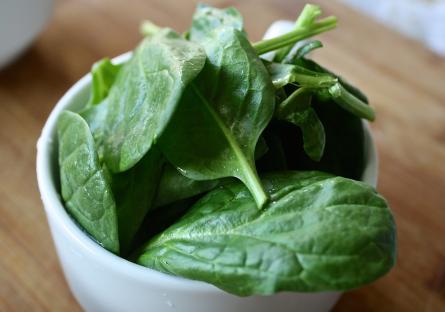This article appears for archival purposes. Any events, programs and/or initiatives mentioned may no longer be applicable.

Remember how Popeye in those old cartoons used to power up by swallowing a can of spinach? There’s truth in even the most wild fictions: spinach may not give you arms the size of logs like Popeye, but it can give you energy and a clarity of focus (among other things). Spinach is one of several foodstuffs that are high in iron. Get enough iron in your system and you too may feel as strong as a certain stuttering sailorman.
What Is Iron?
Iron is a critical nutrient that our bodies need in order to function properly. It has a major impact on our blood, bolstering our red blood cells and producing proteins like myoglobin and hemoglobin which are very important for our immune system and organ function.
There are two types of iron you can consume: heme iron and non-heme iron. Heme iron is only found in animal flesh like seafood, meat, and poultry whereas non-heme iron can be found in legumes, seeds, nuts, leafy greens, and whole grains. Our bodies are better at absorbing heme iron but consuming certain nutrients like vitamin C can help improve your body’s ability to absorb non-heme iron. There are also some nutrients and food stuffs like bran fiber, tannins, and large amounts of calcium that do the opposite and inhibit the absorption of non-heme iron.
What Foods Are High In Iron?
Adding these staples to your diet can boost your iron intake:
- Spinach
- Liver
- Shellfish
- Red meat
- Legumes
- Dark chocolate
- Lentils
- Fortified hot cereals
- Turkey
- Quinoa
- Broccoli
- Tofu
- Chickpeas
- Dried fruits
- Baked potatoes
Iron Eases Fatigue
If you’re feeling tired even after a good night’s rest, you may be suffering from an iron deficiency. When you have less iron in your system your body produces less hemoglobin, which is the protein molecule in red blood cells that shuttles oxygen throughout your body. That’s why when you don’t get enough iron you feel fatigued. Increasing your iron intake can help mitigate that tired feeling.
Iron Provides Energy
Iron’s ability to produce hemoglobin also affects your energy levels. When you have more oxygen circulating through your body, it improves your stamina and energy reserves. Your body is able to more efficiently use energy, which is particularly of benefit for improved athletic performance because that oxygen also impacts muscles.
Iron Improves Cognition
Feeling easily distracted? Having a hard time staying focused on a task? Once again, iron deficiency could be what’s ailing you. Research shows that your cognitive abilities can take a nose-dive when you’re iron deficient. Your memory skills, attention, and ability to process information & learn are most impacted by a lack of iron.
What To Know About Anemia
Iron deficiency is also known as anemia, which can take on various forms of severity. A thing to keep in mind is that iron deficiency is VERY common: studies have found it to be one of the most common nutritional deficiencies among the general population. If you’re experiencing any of these symptoms, consult your doctor to see if you need to take iron supplements or make any adjustments to your diet.
- Fatigue
- Confusion
- Inability to concentrate
- Cold sensitivity
- Rapid heartbeat
- Sore tongue
- A pounding or “whooshing” sensation in the ears
- Pale skin
- Hair loss
- Brittle nails
- Lightheadedness
- Shortness of breath
- Pica (a craving for non-food items like dirt, ice, or clay)
Article by Austin Brietta
Want more wellness tips? Check out these stories: